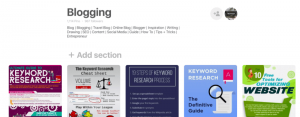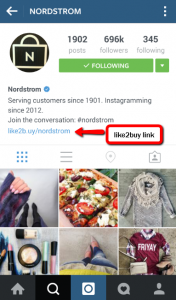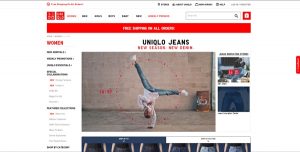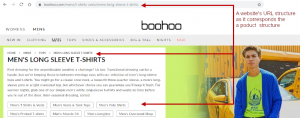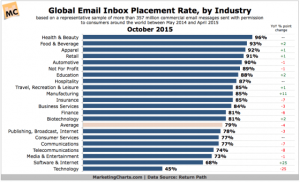New data finds category page optimization is a valuable area to prioritize to boost your organic search rankings and traffic.

E-commerce category pages represent a larger opportunity for ranking and driving organic search traffic than product detail pages, according to research unveiled at SMX West 2020 on Thursday.
Across nearly 30 top U.S., e-commerce sites ranking for more than 25 billion keywords, category pages outperformed product detail pages, driving more keyword rankings and estimated traffic, as well as showing higher potential to capture additional traffic with optimization.
The data – culled by JumpFly and seoClarity from Google’s rankings in the U.S. – highlight the outsized role that category pages play in upper-funnel marketing efforts to drive brand awareness and interest.
Specifically, e-commerce category pages – which include parent category, subcategory and product grid pages with faceted navigation – ranked for 19% more keywords on average than product detail pages ranked for. The additional keywords they ranked for drove an estimated 413% more traffic, based on the keywords’ search demand and the pages’ ranking position. With optimization, those ranking category pages also showed the potential to drive 32% more traffic.
Even though category pages drove strong traffic, there’s a significant amount of room to improve ranking performance. On average, each captured an estimated 9% of the share of voice in its search results page. That means that the other ranking pages captured an estimated 91% of the clicks. Product detail pages, by contrast, captured just 2% of the share of voice.
E-commerce sector trends
The strong-category-page trend was most apparent across sectors that naturally target more generic head and torso keywords. For example, sites that sold cordless hammer drills, table lamps and cowboy boots drove stronger performance with category pages, including fashion, home goods and home improvement, as well as department store sites.
Interestingly, the results varied for one sector tested: electronics. One likely reason that product detail pages perform more strongly in this sector could be that electronics keyword themes tend to contain more concrete product attributes than those in other e-commerce sectors. For example, common TV searches include specifics like the size, display technology, resolution, brand and whether it’s “smart” or not. Product names for electronics also tend to contain some of those attributes to differentiate the many similar products available. Therefore, the relevance between a detailed search query and the details in the product name is higher than it would be for other sectors.
Regardless of sector, however, the direct-to-consumer space drove the strongest category-page results, with category pages ranking for 356% more keywords than product detail pages. These brand manufacturers selling their own products on their sites – like Apple, IKEA, The Gap and Nike – drove an estimated 202% more traffic with category pages, and had the potential to drive 233% more traffic.
Marketplaces and auctions
No e-commerce story is complete without a look at marketplaces and auctions. Unfortunately, there wasn’t a strong consensus among the sites in either group.
Behemoth Amazon bucks the trend with product detail pages ranking for an incredible 21,847% more keywords: 34 million keywords compared to the meager 155,000 keywords that its category pages ranked for. Amazon’s product detail pages also drove an estimated 57.5 times more traffic, and had the potential to drive 275.7 times more traffic.
This makes a certain amount of sense based on Amazon’s strength in media and electronics sales. Both sectors are more focused on the types of keywords that product detail pages would naturally win – book and movie titles, and product attributes. In fact, one of Amazon’s best practices for product detail pages involves placing as many product attributes as possible into its 50- to 250-character product names.
Conversely, the product names, and consequently the title tags that are typically based on them, tend to be very short and vague on most e-commerce sites. One luxury jewelry site, for example, has more than 10 products named simply “Ball Ring.”
Walmart’s smaller marketplace system acted more like Amazon with product detail pages that ranked more strongly. Though technically classified as a marketplace since its Target+ expansion to include third-party sellers last year, Target’s much smaller network acted more like a department store with stronger category pages.
On the auction side, eBay acted more like a department store with slightly stronger category pages, while Etsy drove more rankings with its product detail pages.
Why it matters
This research suggests that category page optimization is a valuable area to prioritize to boost your organic search rankings and traffic.
Category pages form the backbone of an e-commerce site as the clickable representation of the site’s taxonomy. Every category page naturally targets a series of keyword themes that form a path through the funnel. The head keyword sits at the mouth of the funnel, while the related, more detailed themes step lower to form the torso and long tail that move toward the tip of the funnel. Traditionally, the product keywords sit at the very tip of the funnel, converting the customer to a sale.
For example, an e-commerce site that sells clothing could have the following click path through a series of five category pages: women’s clothing > dresses > maxi dresses > black maxi dresses > XL black maxi dresses. Each of those five pages targets a unique keyword theme with a place in the sales funnel. Optimizing category pages enables you to capture those searching customers as they explore their purchase options.
More from SMX
Opinions expressed in this article are those of the guest author and not necessarily Marketing Land. Staff authors are listed here.
Marketing Land – Internet Marketing News, Strategies & Tips
(52)
Report Post

